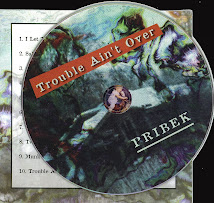
Pribek said this in MooPig comments on September 13, 2008 1:49:00 PM CST:
"You are in way over your head Pal. You don't stand a tinker's chance playing the dozens with this crew."
We thought that choice of words was interesting: So we looked it up and found some interesting stuff: Welcome to the first installment of "MooPig New Bear Garden"
First this:
Many studies suggest that the brain processes swearing in the lower regions, along with emotion and instinct. Scientists theorize that instead of processing a swearword as a series of phonemes, or units of sound that must be combined to form a word, the brain stores swear words as whole units [ref]. So, the brain doesn't need the left hemisphere's help to process them. Swearing specifically involves:
- The limbic system, which also houses memory, emotion and basic behavior. The limbic system also seems to govern vocalizations in primates and other animals, and some researchers have interpreted some primate vocalizations as swearing.
- The basal ganglia, which play a large role in impulse control and motor functions.
So, you can think of swearing as a motor activity with an emotional component.
Secondly:According to the received wisdom of English folklore, certain occupations are especially associated with swearing. Interestingly, they are not exclusively male or working class. Among these proverbial attributions are tinkers, troopers, and fishwives (see under fishwife ) as does the related name Billingsgate. [SOURCE]

The saying that something lacking in value “is not worth a tinker’s curse” is still current, as is the comment that someone “swears like a fishwife.” John Dekker commented in his play The Honest Whore (1608): “He swore like a dozen of drunken tinkers” and his contemporary Randle Cotgrave translated a French saying Il jure comme un abbé as “He swears like a tinker say we” (1611).
The Oxford English Dictionary noted: “The low repute in which [tinkers], especially of the itinerant sort, were held in former times is shown by the expressions to swear like a tinker, a tinker’s curse or damn, as drunk or as quarrelsome as a tinker , etc.” The third byword, trooper, is first recorded much later in a comment in the Sporting Magazine of 1810: “The fellow swore … like a trooper.” The association of the armed forces with swearing is endorsed by a number of authorities, including Eric Partridge and Robert Graves, as well as the numerous personal records.
 An earlier locale of bad language generating a specific historical term is bear-garden . The original Bear Garden was a theater built in Elizabethan times on the south bank of the Thames; it was especially associated with bearbaiting and other cruel and rowdy sports of the time. The foul language emanating from there was recorded in a number of sayings, such as “He speaks Bear-garden” in John Ray’s collection English Proverbs (1678).
An earlier locale of bad language generating a specific historical term is bear-garden . The original Bear Garden was a theater built in Elizabethan times on the south bank of the Thames; it was especially associated with bearbaiting and other cruel and rowdy sports of the time. The foul language emanating from there was recorded in a number of sayings, such as “He speaks Bear-garden” in John Ray’s collection English Proverbs (1678).
The attribution of foul language to artisans and the lower classes is typical and traditional, found in the medieval phrase for foul language, namely cherles termes , meaning “peasant talk” or “low-class language.” In Hamlet (1600) the hero berates himself at one point that he should lose verbal control
And fall a-cursing like a very drab [prostitute]A scullion! [kitchen servant]
(II ii 616-24)
However, there is an important counterbalancing attribution in one of the earliest comments on class and swearing in Sir Thomas Elyot’s The Governour (1531): “They will say that he that swereth depe, swereth like a lorde” (chapter xxvi). The saying confirms the observation of many of his contemporaries, that the nobility swore freely, and even Queen Elizabeth, according to one contemporary, “swore like a man,” a form of upper-class insouciance or disregard for traditional restraints. These aspects are covered in class and swearing. Elyot also follows Chaucer and other medieval writers in regarding gambling as a great provoker of oaths.
These traditional sayings are, of course, significant indicators of historical observations and values. But today there are virtually no fishwives or tinkers in existence, and lords have always been in a minority. Outside the armed forces there are no longer modern equivalents or specific callings especially associated with swearing.
In the American provenance the principal example of a tradition of swearing lies not in specific occupations but in the practice of “sounding” and “playing the dozens, ” a form of ritual insult practiced by African Americans.





2 comments:
Swearing is a symptom of loss of brain function.
Determinedly, Dr J! Thanks for dropping by.. always a joy to see your signature responses.
Post a Comment